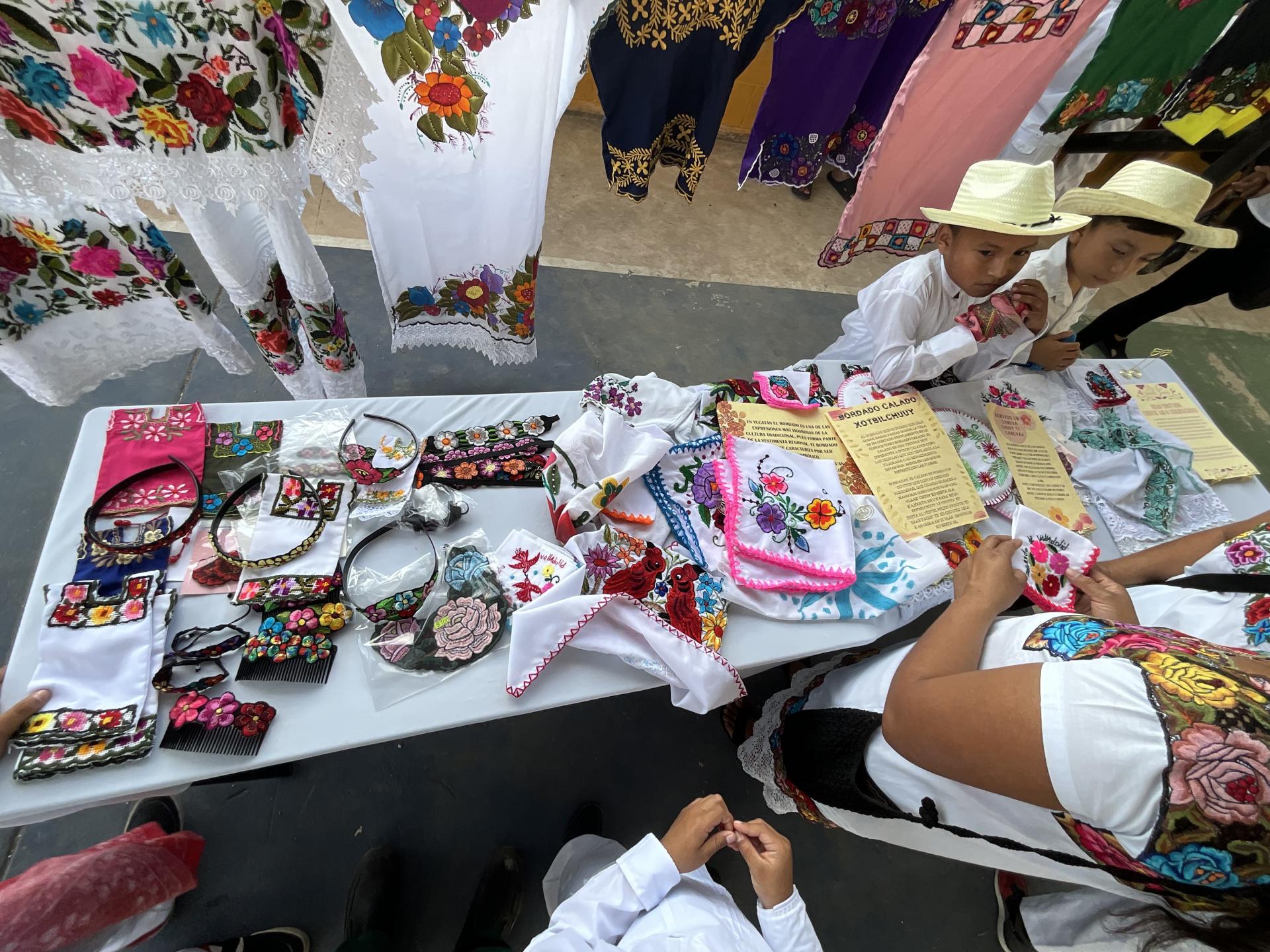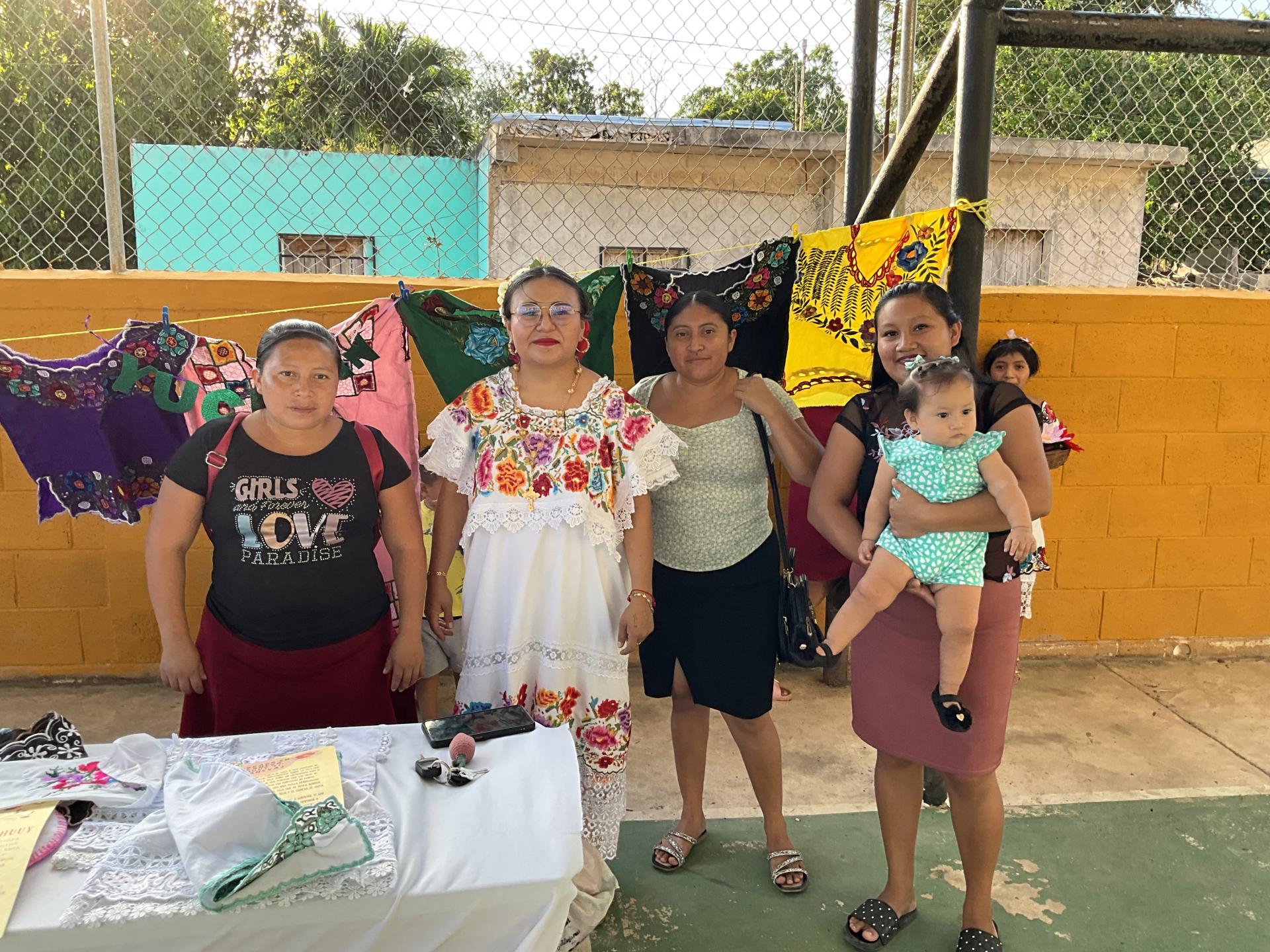
Gloria Guadalupe Dzib Kumul (Maya) is a 29-year-old educator from Valladolid, Yucatan, Mexico. Growing up in a household where Mayan was the primary language, she developed the ability to converse fluently in both Spanish and Mayan. This shaped her identity and ignited her passion for preserving and revitalizing Indigenous languages through education. Dzib is deeply committed to her Maya roots. She is a primary education teacher in Kanxoc, Valladolid, Yucatan, and recently earned a master’s degree in Intercultural Bilingual Primary Education. Her goal has always been to address the specific needs of Indigenous education in the digital era.
The pandemic highlighted the necessity of virtual resources in Indigenous education, and it inspired Dzib to design a website and social media page, Túumben Chúunul (New Beginning). The site is a place for digital sociolinguistic materials focused on the Mayan language: a crucial step in making Indigenous knowledge accessible in the digital world. She also developed Virtual Learning Objects that focus on teaching the Mayan language through a functional approach to enhance language acquisition. These interactive digital resources have fostered a virtual community where materials can be shared through social networks.
The resources Dzib created emphasize the vital role of Elders as the primary transmitters of language in bilingual households. In her community, where the majority speak Mayan, most schools and teaching materials only teach in Spanish—a gap that became especially evident during the pandemic’s shift to distance learning. With the support of Cultural Survival’s Indigenous Youth Fellowship, Dzib created a digital repository of bilingual virtual resources tailored for elementary school children incorporating the experiences of teachers, students, and parents.

Her fellowship project highlights the importance of bringing Indigenous languages into social networks from an inclusive perspective. It also provided an opportunity for educators and parents to recognize and elevate the Mayan language while offering professional growth and digital skills development for Indigenous education teachers.
The project enables the sharing of educational resources, allowing more Mayan speakers to access them on platforms such as YouTube and fostering a virtual intercultural exchange. Despite the challenges posed by a rigid and homogeneous educational system, Dzib remains committed to her mission. “The educational system needs to be more flexible, diverse, and innovative, allowing teachers to focus on developing cognitive, emotional, linguistic, communicative, and physical skills rather than just numerical results,” she says. For Dzib, seeing the personal and academic growth of her students is deeply rewarding. “It’s gratifying to witness the growth of my students. It’s in these moments that I know the seeds I’ve planted are beginning to grow, and better times are on the horizon for them.”

Dzib’s teaching methods emphasize the importance of linguistic revitalization and the creation of autonomous educational spaces within communities. She believes that preserving Indigenous languages is crucial for maintaining community knowledge and identity. “Autonomous educational spaces that focus on self-determination enable the development of life skills, allowing young people to communicate their aspirations and knowledge to improve their circumstances,” she explains. She encourages young people to communicate in their mother tongue and engage with their cultural heritage as she advocates for collaboration between Indigenous education and other educational institutions to promote critical interculturality.
Dzib’s journey is a powerful testament to the transformative potential of Indigenous education. Her unwavering dedication to revitalizing the Mayan language and creating inclusive educational spaces serves as an inspiration to educators and communities worldwide. Through her work, Dzib is not only safeguarding her culture but also empowering the next generation to embrace their heritage and contribute to a more inclusive and diverse future. She firmly believes that “Our culture is our identity” and that the best way to promote this is through the power of education: “Education, like sunlight, must reach everyone. The strength of teaching lies in collaborative work. Let’s recognize the greatness of childhood and ensure that teachers are the ones who bridge the digital, social, and educational gaps.”
Visit Dzib’s project website: https://gloriagdk7.wixsite.com/odasmayas
Top photo: Gloria Dzib Kumul with five of her students in ternos, the regional traditional dress from the Yucatan, holding baskets that belong to the Jarana las Canastas de Halacho, a local celebration.
